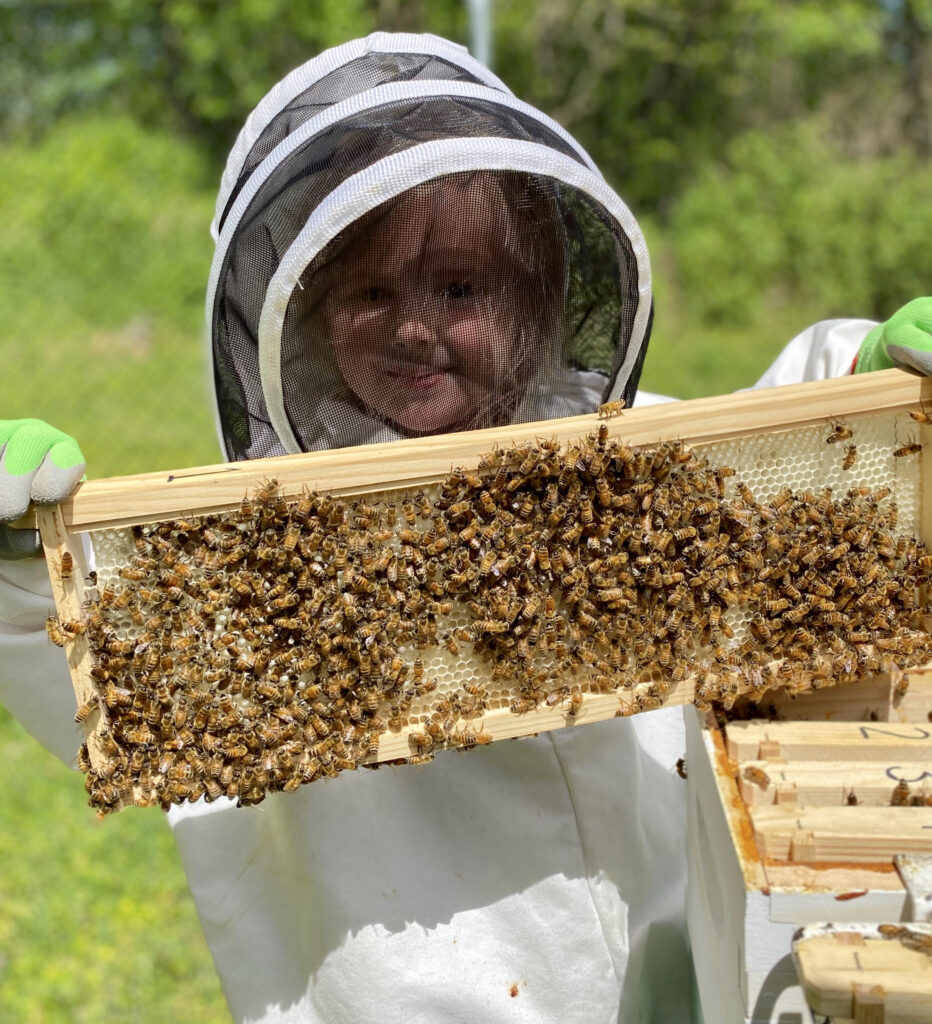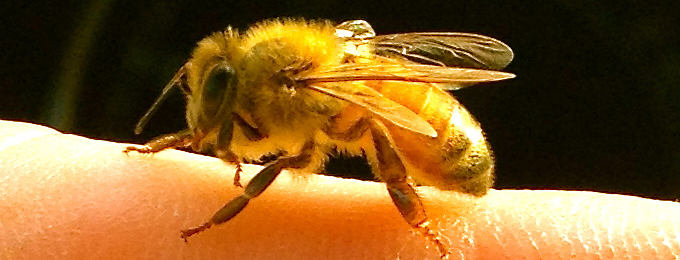Why Should We Care About Bees?
frankthebeeman.com
It was in 2006 that the world first heard of Colony Collapse Disorder, a mysterious illness that wiped out over 50% of the honeybee colonies in North America. From 2007 to 2013, more than 10 million beehives were lost, more than double the death toll the world had ever seen before. Our bees were dying at an alarming rate, but thankfully, people started to pay attention. Trusted news services from around the globe began reporting on the honeybee crisis and how our food supply was in jeopardy. Even big business was sounding the alarm because they too, were dependent on the honeybee. The California almond growers, who represent a $7.6 billion dollar industry, were especially worried given that 81% of the world’s almonds come from Northern California and almonds are 100% dependent on honeybee pollination.
Honeybees are responsible for over one-third of all the food that we eat, they make possible the production of at least 90 commercially grown crops in North America, and they are responsible for the reproduction of 90% of the world’s wild plant species. Bees pollinate many fruits, vegetables, nuts, and other plants that are an essential part of our food supply. The US Department of Agriculture estimates that Honeybees play a vital role in $20 billion of crops each year in the US. Everything from apples, oranges, and blueberries—to avocados, cucumbers, and pumpkins—to coffee and the cotton for our clothes—are all thanks to the honeybee.
Unlike any other insect, people have always felt a strong connection to honeybees, as they satisfy our cravings for something sweet, being the only insect that produces food fit for human consumption. Since people have been painting on cave walls, they have been caring for the bees, and today the honeybee is the most scientifically studied insect on the planet.
Why Are Bees In Trouble?
There is no one single cause that we can point to and blame for killing off the world’s bee population. Instead, there are a combination of factors that are having a deadly impact on our honeybees. Known as the “Four P’s” — Parasites, Pathogens, Poor Nutrition, and Pesticides; together, they represent the “perfect storm” that is decimating honeybee colonies across the globe. In the 1960’s, a non-native parasitic mite called Varroa Destructor jumped from the Asian bee (Apis cerana) to our honeybee, (Apis mellifera), and in two short decades has infected honeybee colonies all over the world. Currently, the only two places that are still free of the varroa mite are Australia and Newfoundland.
The parasitic mite, varroa destructor, is the world’s single leading cause of bee deaths. First, the mites weaken the bees as they feed on the bees’ fat bodies (the bee’s liver), creating colonies of bees that are less equipped to survive. Second, and more deadly to bees are the viruses (Pathogens) that the mites spread throughout the bee community. (These viruses only affect bees and never people.) If you look at how COVID-19 spread and the number of people infected, you can understand the deadly power of a virus and how entire populations are impacted. Bees are very intelligent, but they are incapable of practicing social distancing. Since bees travel
three miles from their hives, they regularly come in contact with other bees, which is why Varroa mites and the viruses they bring remain such a deadly threat.
Another of the Four P’s is Poor Nutrition. Unfortunately, most of today’s industrial farming practices rely on vast monocultures, growing a single crop year after year on the same land, which greatly limits what plants bees can forage on. Closer to home in the suburbs of Northern New Jersey, as more natural habitats, which are rich in a variety of native plants and free to nearly free of pesticides are converted to subdivisions and replaced by chemically treated, manicured lawns, the bees no longer have the diversity of plants they require for proper nutrition.
The last of the Four P’s is Pesticides. The deadliest class of pesticides are neonicotinoids. In some studies, neonicotinoids have been linked to honeybee deaths, and in other studies the sublethal effects are still devastating, as neonicotinoids can impair a honeybee’s navigation, mobility, and memory. The bottom line is that pesticides are developed to kill insects, and bees are insects.

What Can I Do To Help?
There are so many different ways that people can help the bees! Even if you have no interest in becoming a beekeeper, there’s still a lot that you can do — and Ridgewood is the perfect town to do it in! Our village is environmentally friendly and passionate about protecting its parks, wildscapes, and natural habitats. There are several environmental organizations and gardening clubs that you can join or look to for advice. These clubs include:
· The Women Gardeners of Ridgewood
· Ridgewood’s Wildscape Association
Also, in your own yard you can plant a bee-friendly garden! Here are a few tips to remember:
· Use a variety of plants for a continuous bloom from early spring to late fall.
· Plant pollinator-friendly plants in clusters to create targets that are easy for bees to locate.
· Reduce or eliminate pesticide use in your yard. If you must use chemicals, always follow directions and never overuse or over-apply it.
· Bees need water, so put small stones or marbles in a birdbath or bowl for them to stand on.
· Bee-Worthy Weeds: Bees love dandelions, clover, and milkweed; letting them flower in your yard will attract bees and provide them with a great food source.
· Your plants need bees, so always support your local beekeeper!
These are just a few of the things that you can do to make a big difference. Now, imagine the difference it would make if everyone in our village, county, state, country, world would do their small part to make planet Earth a healthier place to live. It’s really just a few things we each need to do and then together we can collectively make a huge difference at home and around the globe.
If you’re interested in learning more about sustainability and connecting with your environment, what better way to then by helping the world’s most important insect! If you think you may have the beekeeping bug or just want to learn more, please check out Bee People and the Bugs They Love for a fascinating foray into the obsessions,
friendships, scientific curiosity, misfortunes and rewards of suburban beekeeping—through the eyes of a Master Beekeeper. It’s a behind-the-hive look at the always-buzzing world of beekeeping. Now, are you ready to catch the buzz?
